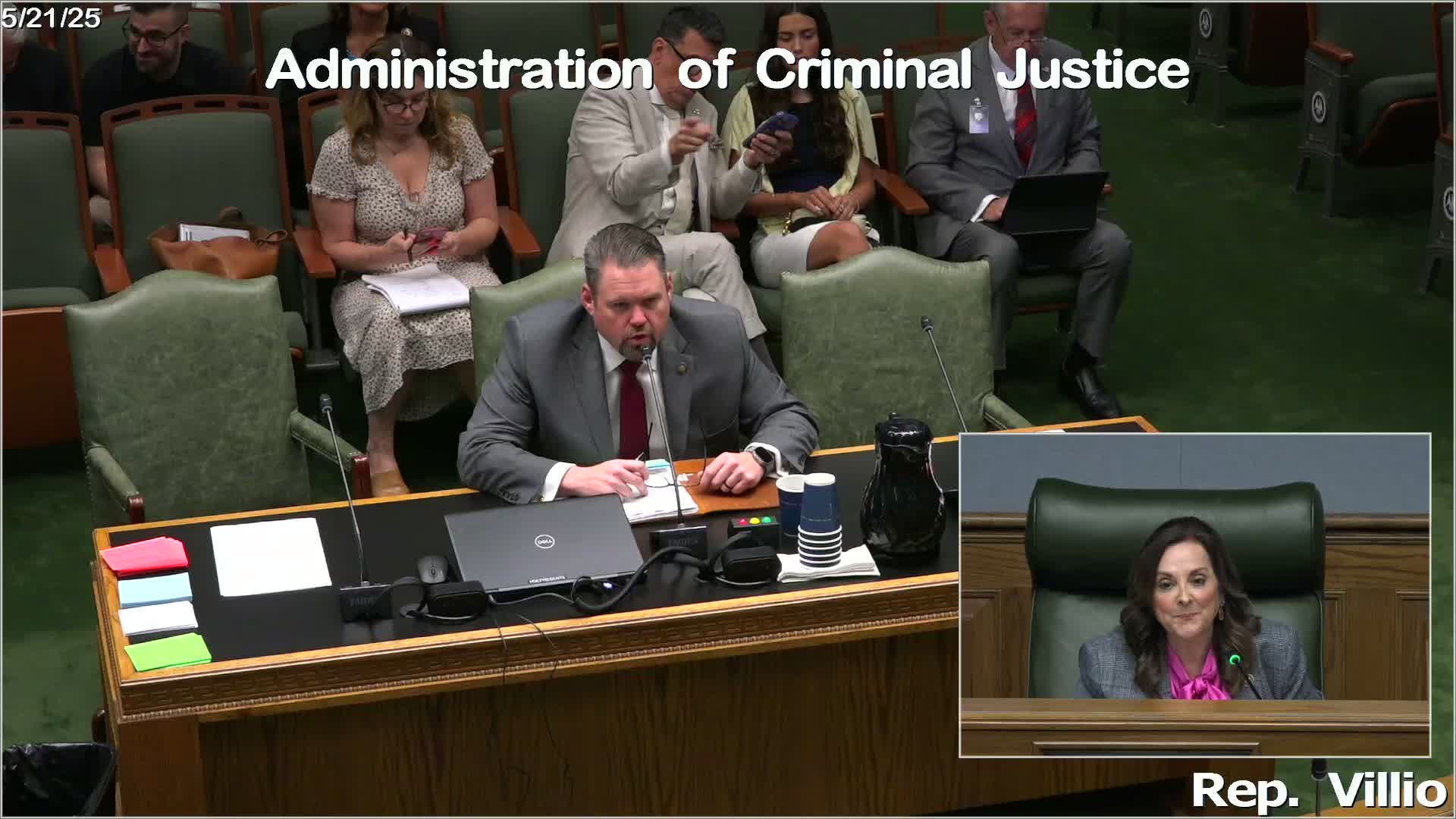Article not found
This article is no longer available. But don't worry—we've gathered other articles that discuss the same topic.
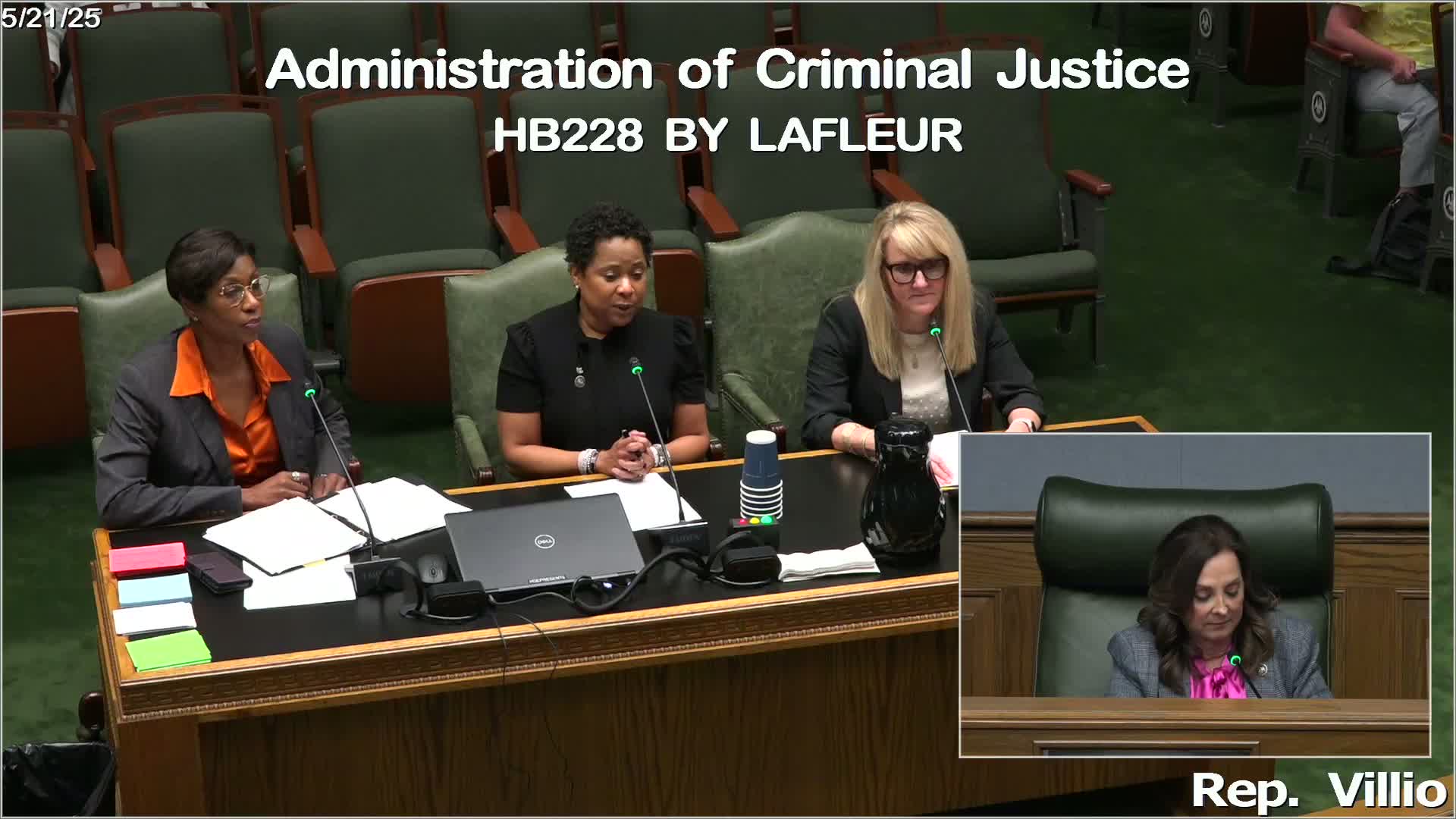
Committee defers bill to allow online lottery sales and orders further study
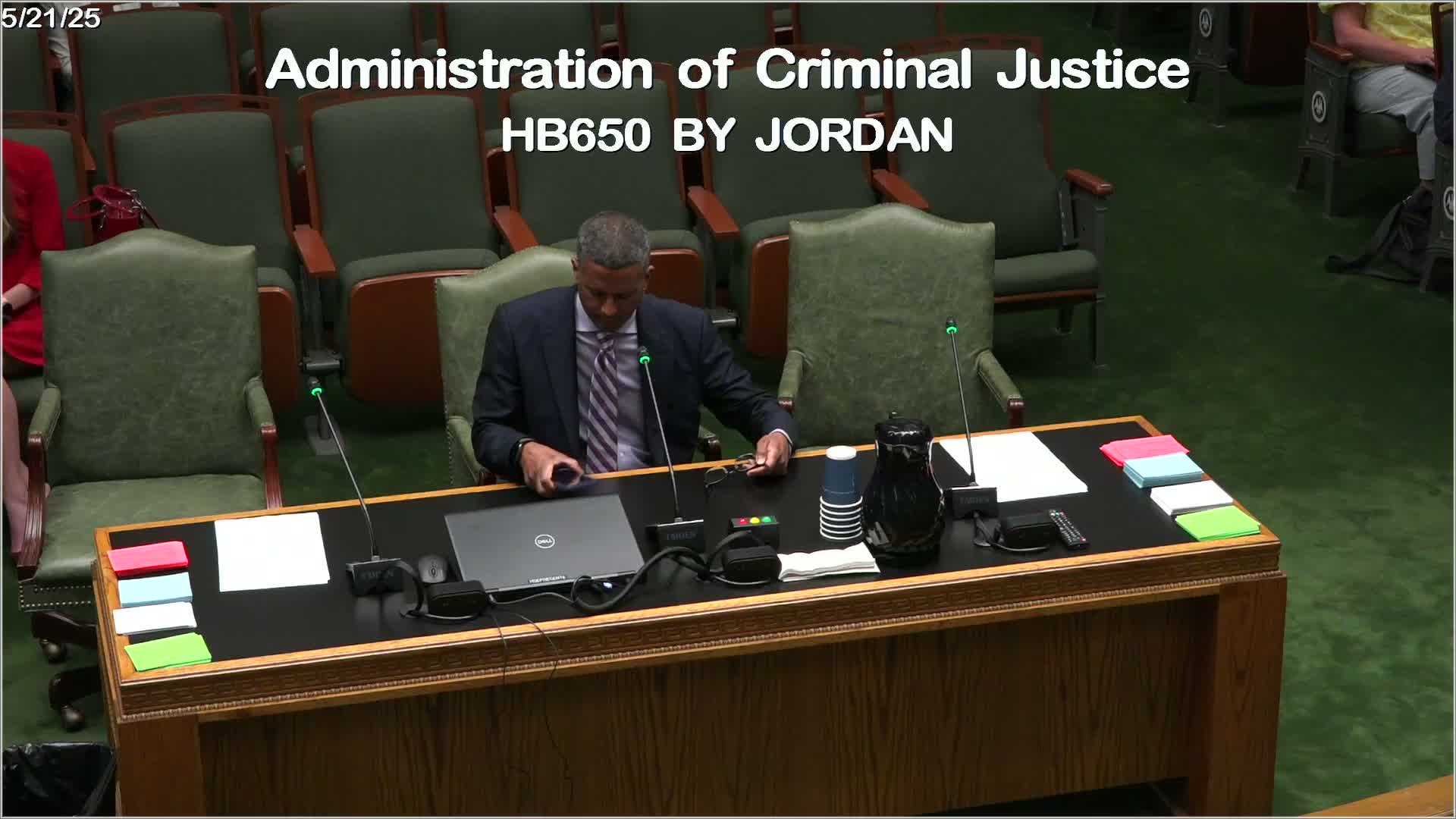
Lawmakers defer bill to create fund compensating people overdetained in jails as talks continue
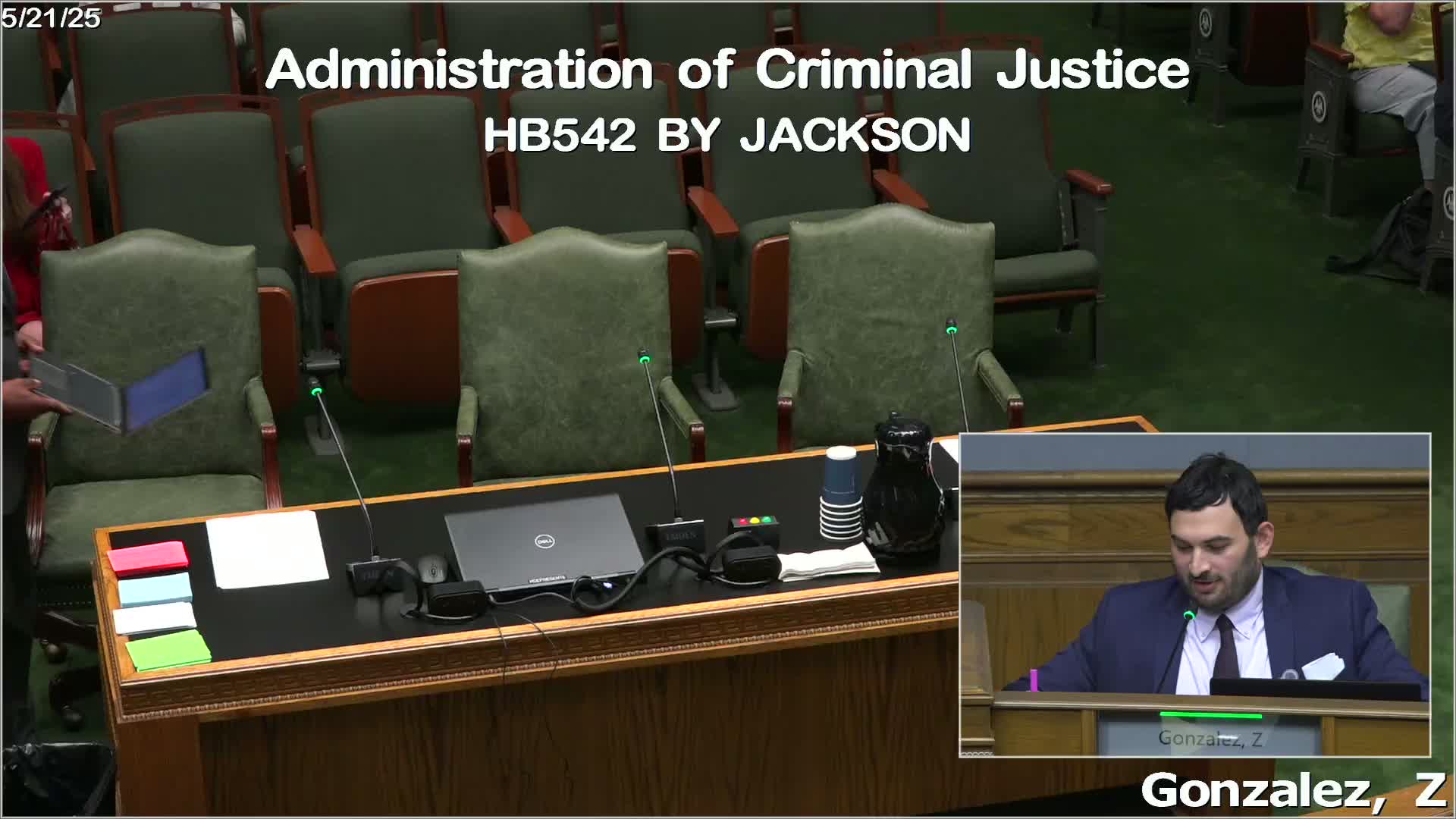
Lawmakers consider expanded promotional play and tax incentives to spur casino investment
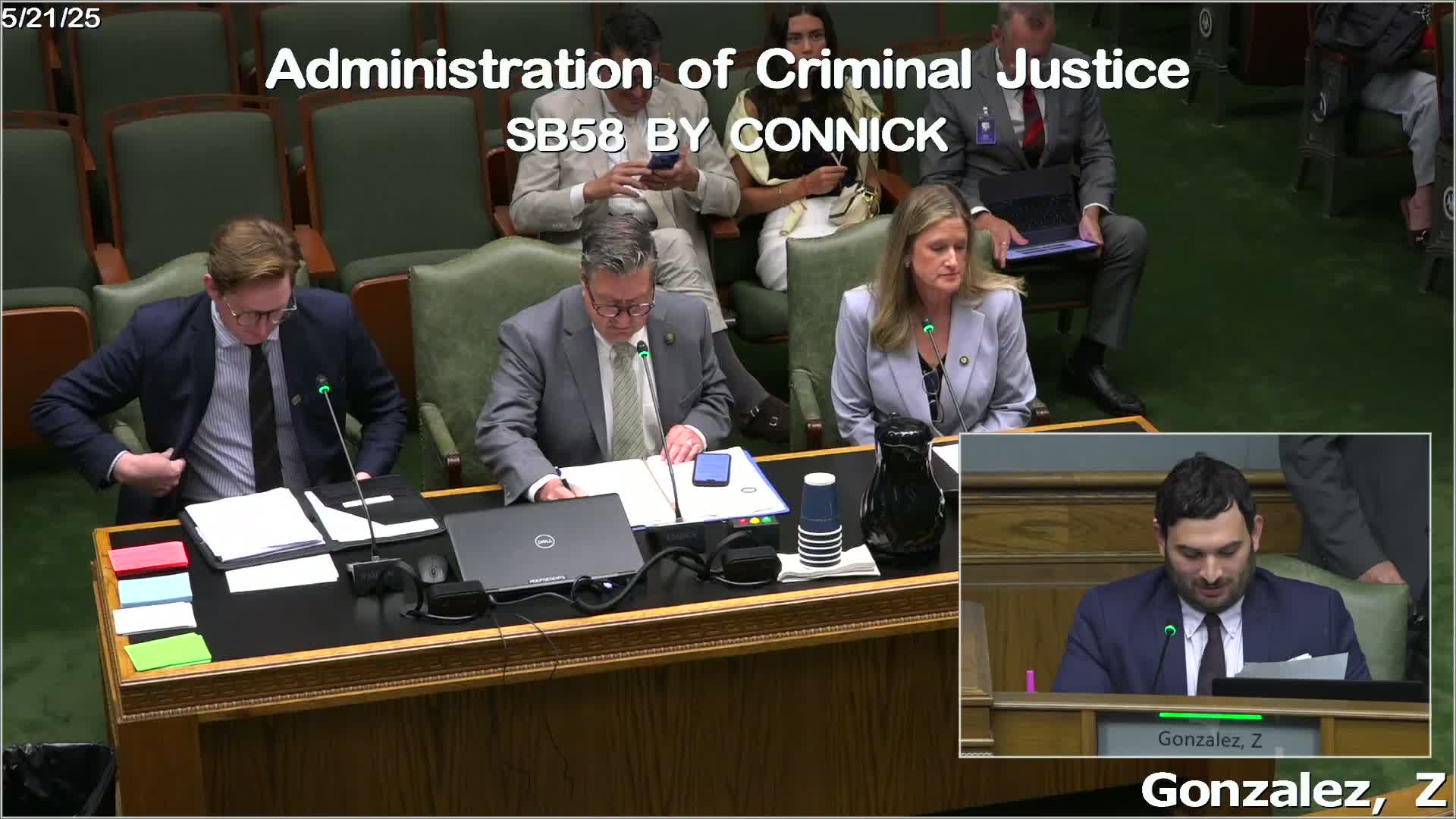
Committee adopts amendment and advances bill targeting child grooming behaviors
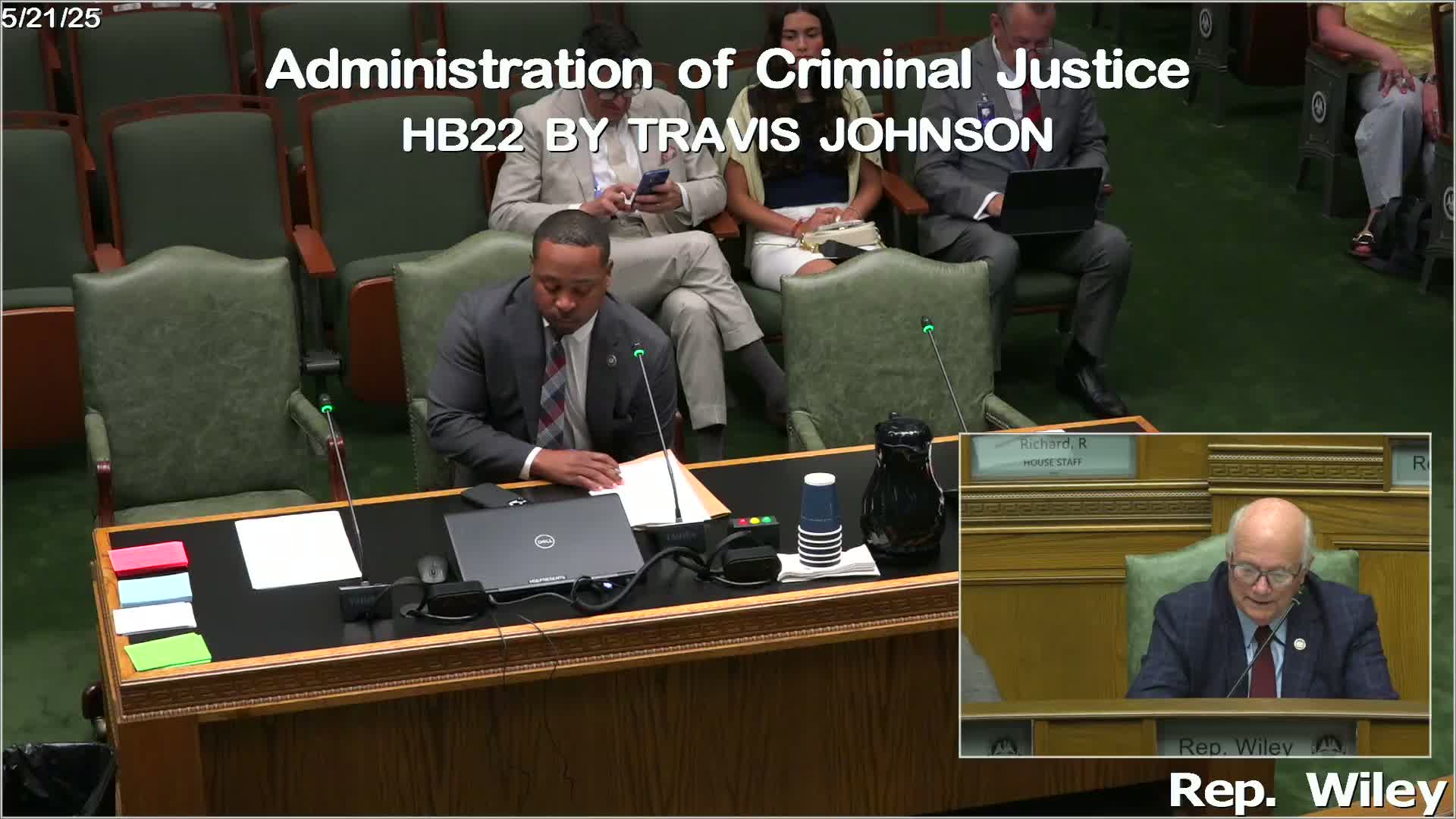
Representative withdraws Concordia Parish video-poker local option after industry opposition
